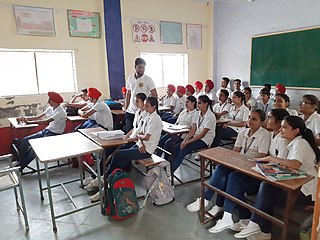
Education in India is primarily managed by the state-run public education system, which falls under the command of the government at three levels: central, state and local. Under various articles of the Indian Constitution and the Right of Children to Free and Compulsory Education Act, 2009, free and compulsory education is provided as a fundamental right to children aged 6 to 14. The approximate ratio of the total number of public schools to private schools in India is 10:3.
The Indian Certificate of Secondary Education (ICSE) is an examination conducted by the Council for the Indian School Certificate Examinations, a private board designed to provide an examination in a course of general education, in accordance with the recommendations of the New Education Policy 2020 (India), through the medium of English. The examination allows secure suitable representations of responsible schools in their states or territories.

Mallya Aditi International School is a private school located in New Town Yelahanka, Bangalore, India.. In a short span of 38 years, Aditi has grown to be considered one of the top schools in the country, consistently being ranked among India's top 5 private day schools.
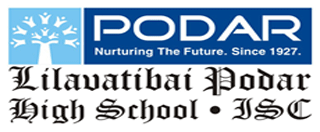
Smt. Lilavatibai Podar High School, (LPHS), is a co-educational, English medium institution for grades 1 through 12. It is a private, ICSE, unaided, independent, day-boarding school, registered with the state of Maharashtra. LPHS is located at Ramee Emerald Building, Near Shamrao Vitthal Bank, SV Road, Khar, Mumbai, Maharashtra, 400052.

Inventure Academy is a private coeducational International School in Bangalore, India. It is located on the Whitefield-Sarjapura road on the Eastern periphery of Bangalore city and has a campus of over 20 acres.
The Secondary School Leaving Certificate is a certification obtained by a student on successful completion of an examination at the end of study at the secondary schooling level in India. The SSLC is obtained on passing the grade 10 public examination, which is commonly referred to as 'class 10 board examinations' in India. SSLC is a common eligibility examination popular in many states in India, especially Kerala, Karnataka, and Tamil Nadu. The SSLC is also called Secondary School Certificate (SSC) in Andhra Pradesh, Telangana, Maharashtra and also as High School Certificate (HSC) in Madhya Pradesh and also as Matriculation in many states of India.

The National Curriculum Framework 2005 is the fourth National Curriculum Framework published in 2005 by the National Council of Educational Research and Training (NCERT) in India. Its predecessors were published in 1975, 1988, 2000.

Nai Talim, or Basic Education, is a principle which states that knowledge and work are not separate. Mahatma Gandhi promoted an educational curriculum with the same name based on this pedagogical principle.
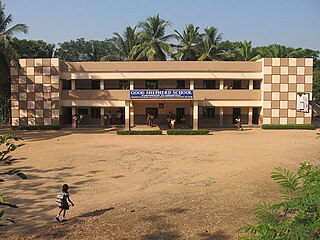
Good Shepherd School at Kuriannoor in Thiruvalla Taluk Pathanamthitta district of Kerala, India, was founded by its patron, the late Professor V. A. Mathen Bose and Shanta Bose. Set in the pristine ecological-hamlet of Kurianoor village, the school offers education for boys and girls from kindergarten to grade 12. The school's motto is: Truth is beauty: beauty truth, and trains children to become competent, caring and responsible adults.
The National Policy on Education (NPE) is a policy formulated by the Government of India to promote and regulate education in India. The policy covers elementary education to higher education in both rural and urban India. The first NPE was promulgated by the Government of India by Prime Minister Indira Gandhi in 1968, the second by Prime Minister Rajiv Gandhi in 1986, and the third by Prime Minister Narendra Modi in 2020.
All India Secondary School Examination, commonly known as the class 10th board exam, is a centralized public examination that students in schools affiliated with the Central Board of Secondary Education, primarily in India but also in other Indian-patterned schools affiliated to the CBSE across the world, taken at the end of class 10. The board conducts the examination during the period of February–March. Previously it was taken in March to April every year. In this exam, mathematics, science, and social science are compulsory, with any two languages. Students can also opt skill subject such as information technology, painting, yoga, music or artificial intelligence. Successful candidates are awarded the Secondary School Completion Certificate, a statement of marks, and a migration certificate stating that the candidate has completed secondary schooling and can pursue higher education. For the academic year 2016–17, the Central Board of Secondary Education has revived the old system of syllabus and marking scheme (complete syllabus for All India Secondary School Examination and marks out of 500. India has state exams and central exams.

Sainik School Tilaiya, Jharkhand, India, is a public boarding school established and managed by the Sainik Schools Society under Ministry of Defence. It is a preparatory school for entry into the defence services — National Defence Academy (NDA), Khadakwasla, Pune and Indian Naval Academy (INA), Ezhimala, Kerala.

The Board of Secondary Education, Rajasthan (RBSE) is a State Level board of education in the Indian state Rajasthan, for public and private schools, controlled and managed by the Government of Rajasthan. Also The Board is recognised Nationally. The board is responsible for promotion and development of secondary education in Rajasthan state. RBSE was Established in the year 1957 and constituted under the Rajasthan Secondary Education Act 1957.All schools affiliated to RBSE follow the NCERT curriculum especially from class 9 to 12. The current Chairperson of RBSE is Laxmi Narayan Mantri (IAS).

St. Joseph's Convent High School, Patna, is a private, girls high school in Bankipur neighborhood of Patna, Bihar, India. It is a Catholic Missionary educational institution established in 1853, currently managed by Sisters of Congregation of Jesus. It has two sections, one is affiliated to the Council for the Indian School Certificate Examinations, New Delhi and another is affiliated to Bihar School Examination Board. It is one of the oldest schools in the state of Bihar and was founded by the first Bishop of Patna, Anastasius Hartmann. The current principal of the school is Sr. Josephine CJ. The school's guiding principle are the teachings of Mary Ward.
Little Angels' English Higher Secondary School, locally known as Central syllabus school, is a private School located in Karur, Tamil Nadu, India. The school is the only one in the region following the X-std Indian Certificate of Secondary Education and XII-std Council for the Indian School Certificate Examinations's national curriculum. The institute holds the record of maintaining a 100 percent result for more than two decades. Usha Nandhini is the current principal of the school.
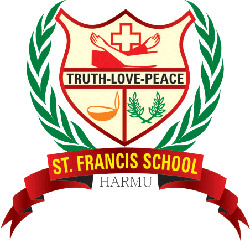
St. Francis School, founded in 1978, is an English medium, co-educational school established and directed by the Third Order of Saint Francis at Ranchi, Jharkhand. The school is affiliated with the Council for the Indian School Certificate Examination.
The National Institute of Open Schooling (NIOS), formerly National Open School is a national level board of education in India, controlled and managed by the Government of India. It was established by the Ministry of Education of the Government of India in 1989.
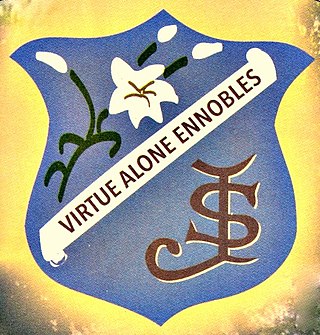
St. Joseph's Convent Higher Secondary School is an Indian school, located in Sambalpur, Odisha.
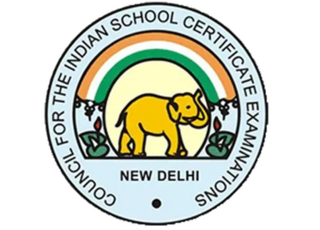
The Council for the Indian School Certificate Examinations (CISCE) is a non-governmental privately held national-level board of school education in India that conducts the Indian Certificate of Secondary Education (ICSE) Examination for Class X and the Indian School Certificate (ISC) for Class XII.

De Nobili School, CTPS, Bokaro also known as De Nobili School, Chandrapura is a private Catholic secondary school located in Chandrapura, Bokaro in the state of Jharkhand, India. Founded and run by the Jesuits, the English medium school includes Nursery to Class 10.














